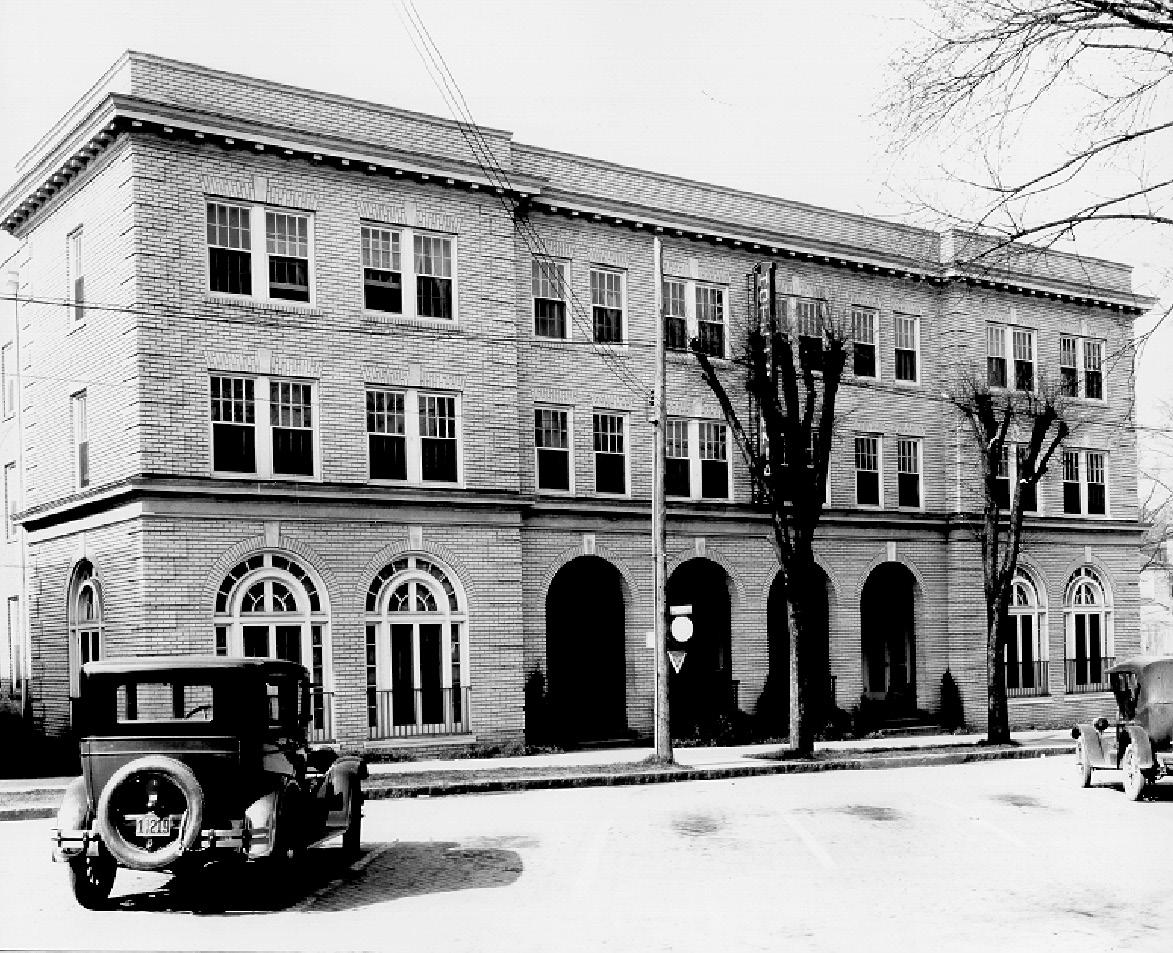C
O
M
I
M
U
N
I
T
LAGRANGE SCORES AN INDEPENDENT BOOKSTORE
ndependent bookstores are a rare blessing to any community and are often tourism attractions. Think Square Bookstore in Oxford, Mississippi; Sun Dog Books in Seaside, Florida; and E. Shaver Booksellers in Savannah. LaGrange’s downtown just got a lot “smarter” with the addition of Pretty Good Books at 118 Church Street. While independent bookstores often battle for survival, they can be a success when the owner has passion, courage and a willingness to sacrifice. Here’s an interview with just such an owner - Joshua Rigsby. How did your bookstore get its start? We originally began as a single consignment shelf in a Valley, AL thrift store in 2018 and then opened a storefront on Vernon Road a year later in 2019. Who runs Pretty Good Books? It's a family affair, everyone takes part—my parents, my wife, my kids. Do you and your wife have other jobs or is the bookstore your sole business? I teach at Columbus State University. My wife works for the state of Georgia assessing preschools and helping provide quality education to kids across the state. How did you end up in LaGrange? I grew up mostly in New Mexico then went to California for school. My wife and I lived just outside of Los Angeles for about 12 years before moving to Georgia. We came here because this is where my grandparents live. My parents moved here to help take care of them, and we came to be closer to everyone. What types of books do you stock and specialize in? We pride ourselves in offering "a little bit of everything." We have both old and new books in a variety of genres: kids, sci-fi, horror, manga, western, romance, Christian, local interest, mystery, and a ton of others. We also carry vintage titles from the 18th and 19th centuries, and have a service in which we assess the value of private collections. What characteristics do you think a person needs to be a successful
18
August 2021
Y
independent bookstore owner? What has been the key to your success? Listening to customers is arguably the most important thing we've learned to do. If several people are interested in a title, author, or genre, we move heaven and earth to try to either get it into the store, or track down a hard-to-find copy for someone. People really appreciate when you take care of them and are attentive to their needs. After that, I have learned to read a bit more widely than I was accustomed to before. Folks want to have a conversation with you about a variety of authors and genres, and that means I can't just specialize in the niche that I'm naturally drawn to. It's a rewarding experience, branching out in this way, and I'd like to think it's making me a better person. Ha. What do you enjoy most about being a bookseller? There is nothing better than seeing a kid get interested in a book. Sometimes it's a bit of work, and you have to dial up the theatricality of your presentation, but when you see that excitement ignite behind their eyes, and they thrust that trembling dollar bill over the counter, then go skipping out the front door with the book hugged close to their chest? It's hard to beat that feeling. What do you least enjoy about being a bookseller? Shipping delays and Amazon. What does the future look like for independent booksellers? What do you think you and your fellow independent booksellers need to do to survive? Indie booksellers are seeing a rebound
across the country. Some of that has been the pandemic. Turns out, when people were stuck at home with nothing to do, they rediscovered how fantastic reading is. Some of it is the emergence of the “shop local” movement. Folks have come to realize that money spent at local independent stores stays in the community, rather than financing a gazillionaire's aspirations to give insanely wealthy people pleasure trips to outer space. How are bookstores relevant in the internet age? Admittedly, there are some things that books used to do which are now better done online. Dictionaries, for example, are mostly irrelevant because you have instant definitions at your fingertips all the time. There is plenty of research however, which indicates that for longerform content—say, a book of nonfiction, or a tightly-plotted spy thriller—people tend to understand the content better and (Continued on page 39)









